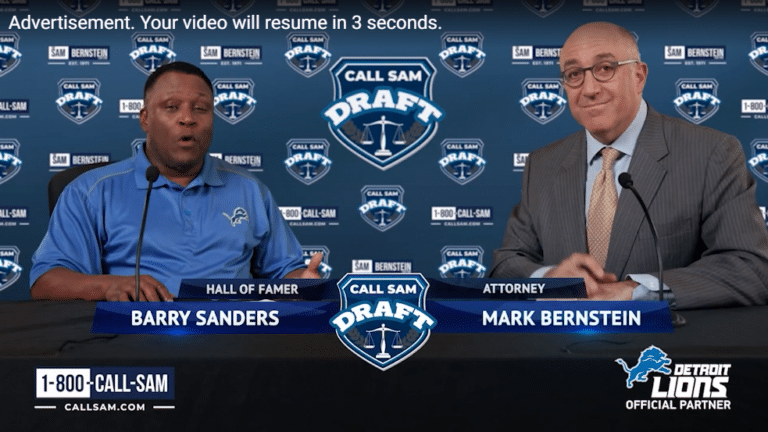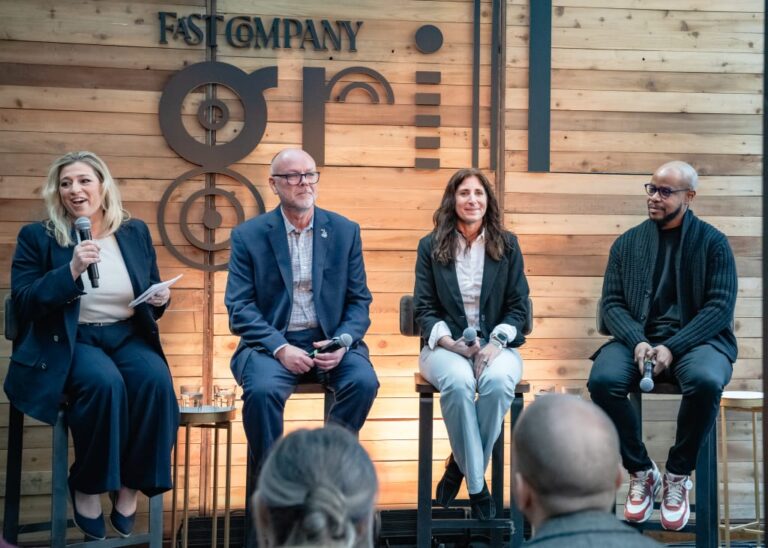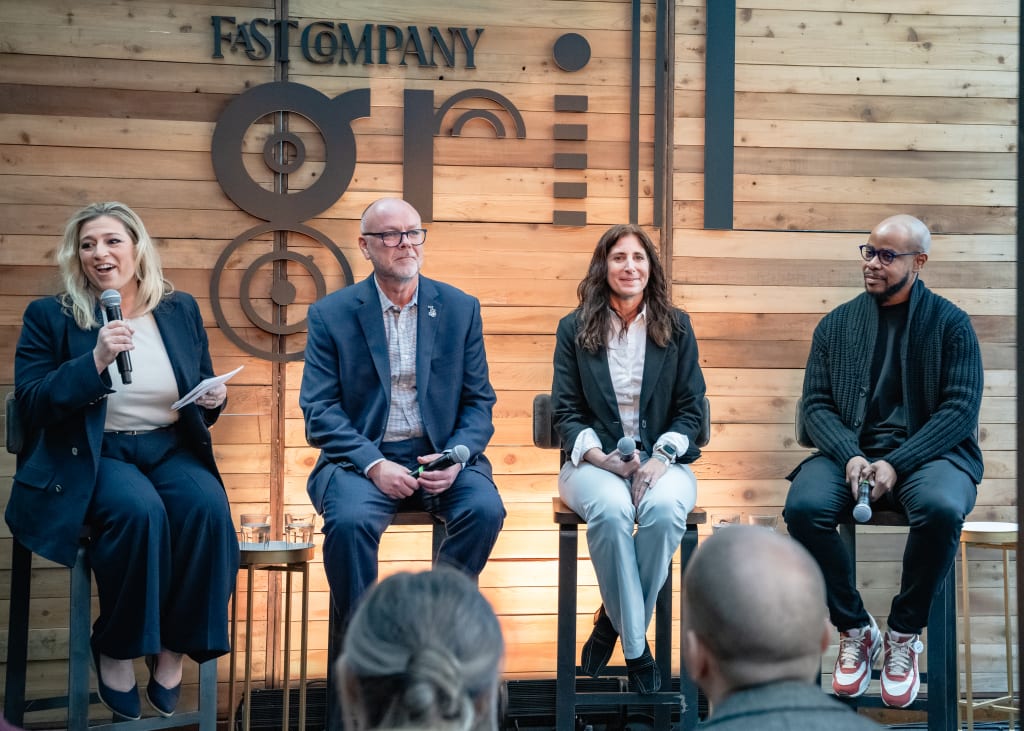
Comparative Advantage in International Trade Explained
Learn how comparative advantage influences international trade and drives economic growth. Discover key benefits for businesses and countries globally.

Learn how comparative advantage influences international trade and drives economic growth. Discover key benefits for businesses and countries globally.

Spot market trends for growth. Learn key insights, data points, and real examples to leverage trends effectively for your business success.

Explore key international trade theorists and their pivotal ideas, shaping global commerce and economic strategies today.

Explore non-invasive anti-aging beauty solutions that rejuvenate your skin. Learn about effective treatments and trends that keep your skin youthful.

Harness digital marketing to expand your global reach, boost engagement, and connect with a wider audience. Discover effective strategies today.

Boost global sales with social media tips. Explore trends, data-backed strategies, and tools to enhance your market reach.

Safeguard your intellectual property with strategies for global protection and learn practical steps to secure your innovations worldwide.

Explore how international trade benefits a nation when it enhances economic growth, creates jobs, and improves consumer choices with real-world examples.

Explore methods of international trade to enhance global business success. Learn effective strategies for efficient and profitable trading operations.

Taking your business global can unlock new revenue streams, extend your brand’s reach, and establish your company as an international player. Here’s a step-by-step guide to help you succeed globally.

Entering the U.S. market can be a daunting task, but with the right strategies, your products can thrive and reach a wide audience.

In a significant milestone for space exploration, the Federal Aviation Administration (FAA) has greenlit SpaceX’s fifth Starship test flight, set to take off from the Starbase facility near Boca Chica Beach in South Texas. Scheduled for October 13th, this test marks another leap forward in SpaceX’s ambitious plans for space travel and exploration.

Amazon and Walmart Prime Day, annual shopping events featuring steep discounts on a wide range of products, have become highly anticipated by consumers worldwide. While these events offer significant benefits to shoppers, their impact on the broader economy is a complex issue with both positive and negative implications.
KEY POINTS Walmart said it will close all of its health-care clinics across the country, a stunning reversal of its plans
KEY POINTS Dave & Buster’s will begin offering loyalty members the ability to bet on its games. Adults age 18 and
By Paul Hiebert Inspiration meets innovation at Brandweek, the ultimate marketing experience. Join industry luminaries, rising talent and strategic experts in Phoenix,
On today’s news digest: Social Video to Grow 16% in 2024; UK Watchdog to Investigate Amazon and Microsoft’s AI Relationships; Meta’s

A version of this story first appeared in CNN Business’ Before the Bell newsletter. Not a subscriber? You can sign up right here. You can listen to an audio version of the newsletter by clicking the same link.
New York
CNN
—
Google CEO Sundar Pichai recently fired about 50 employees for protesting the company’s relationship with the Israeli government. His explanation boiled down to four words: This is a business.
Some people disagreed with his actions, including the group that organized the protest.
“Google is throwing a tantrum because the company’s executives are embarrassed about the strength workers showed at last Tuesday’s historic sit-ins, as well as their botched response to them,” the No Tech for Apartheid group said in a statement.
As workers around the country see protests against the Israel-Hamas war and encampments proliferate on college campuses, they might wonder if these actions could start to spread to offices as well.
Before the Bell spoke with Johnny C. Taylor Jr., president and CEO of trade association SHRM, previously known as the Society for Human Resource Management, about how companies are preparing for potential protests among employees and how workers should express opposing views at the office and beyond.
This interview has been edited for length and clarity.
Do you think Google’s actions were justified? Should employees be allowed to protest at their place of work?
I fundamentally, 1,000%, agree with Sundar Pichai.
Companies often offer forums where you can share your thoughts, because they want to welcome a diverse perspective. That’s a good place for an employee to share their feelings. You can’t share your feelings by blocking entrances to work, that’s not okay. Taking over the president of a division’s office, not okay. We are ultimately here, as organizations, to run a business. Anything that disrupts the running of that business is not okay.
We hire people and encourage people to have diverse opinions about these things. We don’t want a monolithic workforce, and we’re not judging who’s right or wrong. We’re just saying you can’t disrupt work.
Should employees be worried about protesting outside of the workplace?
It depends. You shouldn’t engage in anything that compromises a company’s reputation, even outside of working hours. You have to be really careful there, it’s your time and you have a right to protest and to have a point of view. But if that in any way does not reflect your company’s culture or values or (causes) disrepute to their brand, they have a right to fire you. You can always choose to move on, but remember you don’t have a right to work at most companies.
How should corporate leadership work with or address rising tensions in the workplace?
Good leadership says, ‘we respect your differences and we embrace them.’ Diversity is something they should be committed to. They should say that we can disagree, but we’ve got to disagree better.
Good leadership is CEOs convening their employees and telling them they can talk about their perspectives but that yelling at, shaming or embarrassing colleagues is always unacceptable behavior and a behavioral offense. More and more CEOs are laying this out, we have reached that point. Practicing incivility is not something they’re going to tolerate.
I’m actually pleased about that. Because I think we overcorrected, we actually did. Wanting people to bring their full selves to work is great, but what we have found is people want diversity, as long as they agree with it.
You’d be surprised about how many people want to come to work just to work. They’re not interested in debating social issues at work.
Should the leadership at companies being called out by protesters respond?
Generally you ignore it. Every day, there will be some group of employees who don’t agree with who you do business with, who does business with you, etc. Just by definition, a CEO could find him or herself every day having to address every one of their client relationships. We establish upfront, the head of HR and the CEO, what our values are and how we’re going to operate. You have to make that clear to employees, we call it cultural clarity. And then employees can self-select — they don’t have to work there.
But there are some issues that are worth addressing and we clearly don’t want to suppress employees or stop them from sharing with us. I think it comes down to three words: challenge, decide, commit.
If you think we should not do business with whomever, then challenge it. I want to hear from my employees as the CEO, and so I give permission to challenge our practices. Based upon that, I will respond and then you have to decide. And after you decide, you must commit. And there are off-ramps for employees if they don’t like the decision.
So, generally, we encourage CEOs to want to be challenged to think differently. But they need to be challenged respectfully and civilly. But once a decision is made, that’s it. We can’t keep re-litigating when we also have a business to run
You speak with CEOs every day. Are they worried about employee protests?
Yes. Most of the CEOs I’ve talked to said they haven’t seen their employees protest, but they’re bracing for it. They don’t think this will be isolated to Google. But I will say that I don’t think it will become that widespread because of how swiftly and unapologetically Google addressed it. I don’t think it will become a thing.
I think Google’s response has given a lot of cover to other companies, but I’m hearing a lot of management teams put plans into place just in case.
Rolls-Royce is vastly expanding its factory in Chichester, England. The BMW subsidiary is adding five new buildings with construction planned to start next year, reports my colleague Peter Valdes-Dapena.
Usually, when a carmaker expands a factory it’s for one simple reason: building more cars. But this is Rolls-Royce. Making and selling more Rolls-Royces would undermine the brand’s vaunted exclusivity.
So this factory expansion isn’t about making more cars, but making more expensive cars, which takes more time and requires more space for workshops and storage of exotic materials.
The expansion signals something about Rolls-Royce’s ultra-wealthy clientele. While they can only buy so many cars, they can certainly spend more on each one.
Since 2020, Rolls-Royce sales have increased 17%, reaching a record of 6,032 cars and SUVs worldwide last year. Over that same time, though, the average amount of money customers paid for their cars increased 43%, going from $350,000 in 2020 to $500,000 each, on average, last year.
That increased revenue per vehicle comes largely from more complex and time-consuming customization — “bespoke,” as Rolls-Royce terms it — requests. It even calls its luxury customization programs “Bespoke” and, for fully customized models, “Coachbuild.”
“We’re not necessarily growing that much in volume,” said Martin Fritsches, president of Rolls-Royce Motor Cars Americas. “That’s obviously not our focus point. But clearly, our bespoke area is gaining and relevant. And has been expanding dramatically, particularly in the last couple of years.”
The US government has asked leading artificial intelligence companies for advice on how to use the technology they are creating to defend airlines, utilities and other critical infrastructure, particularly from AI-powered attacks, report my colleagues Brian Fung and Sean Lyngaas.
The Department of Homeland Security said Friday that the panel it’s creating will include CEOs from some of the world’s largest companies and industries.
The list includes Google chief executive Sundar Pichai, Microsoft chief executive Satya Nadella and OpenAI chief executive Sam Altman, but also the head of defense contractors such as Northrop Grumman and air carrier Delta Air Lines.
The move reflects the US government’s close collaboration with the private sector as it scrambles to address both the risks and benefits of AI in the absence of a targeted national AI law.
The collection of experts will make recommendations to telecommunications companies, pipeline operators, electric utilities and other sectors about how they can “responsibly” use AI, DHS said. The group will also help prepare those sectors for “AI-related disruptions.”
“Artificial intelligence is a transformative technology that can advance our national interests in unprecedented ways,” said DHS Secretary Alejandro Mayorkas, in a release. “At the same time, it presents real risks — risks that we can mitigate by adopting best practices and taking other studied, concrete actions.”
Among the panel’s other participants are the CEOs of technology providers such as Amazon Web Services, IBM and Cisco; chipmakers such as AMD; AI model developers such as Anthropic; and civil rights groups such as the Lawyers’ Committee for Civil Rights Under Law.

The successful hosting of the NFL Draft didn’t just add momentum behind the city’s revival, but it gave local businesses a foundation to build on ahead of more events and successes coming to Detroit.
Posted

This story is part of CNBC Make It’s The Moment series, where highly successful people reveal the critical moment that changed the trajectory of their lives and careers, discussing what drove them to make the leap into the unknown.
Richard Branson is a thrill-seeker. He’s traveled to space in his own rocket ship and crossed oceans in a hot air balloon.
So if you ask him for one of the hardest decisions he’s ever had to make, you might get a surprising answer: a moment when he opted to "play it safe."
He’s referring to selling record label Virgin Records to Thorn EMI for nearly $1 billion in 1992. The deal made sense from a business perspective but the idea of selling one of his first ventures — one that started as a brick-and-mortar record shop in London in 1971 — left him in tears, he says.
"It was definitely a sad day," Branson tells CNBC Make It. "I remember running down the street with tears streaming down my face, past a sign that said, ‘Richard sells for a billion.’"
Branson needed the money to focus on a newer venture, Virgin Atlantic. The upstart airline needed resources for a legal battle — one it eventually won, as he details in his new audiobook memoir, "Losing and Finding My Virginity" — over an alleged smear campaign perpetrated by British Airways.
He had two choices: Sell his record label or risk the failure of his airline. Emotionally, selling Virgin Records was like casting away a piece of himself, says Branson — but it was established and successful enough to keep thriving under new ownership.
Meanwhile, Virgin Atlantic’s failure would’ve marred his reputation and threatened the expansion of his business empire, which today ranges from telecommunications to spaceflight. Virgin Group is largely responsible for Branson’s estimated net worth of $2.5 billion, according to Forbes.
The billionaire’s fondness for Virgin Records still endures: He reportedly considered buying the brand back as recently as 2012, though a deal didn’t come to fruition.
Here, Branson discusses the difficulty of letting go of one beloved venture to boost another, how that decision helped shape the future of Virgin Group and why you should balance instinct with caution when seizing any big opportunity.
CNBC Make It: How did you make the decision to sell Virgin Records? What was going through your head?
Branson: Virgin Records was the biggest independent record company in the world. We’d just signed The Rolling Stones and Janet Jackson. It was going unbelievably well.
Virgin Atlantic was a child at school who was being bullied. I had to really turn my attention to the child that was being bullied. What I decided was: If I sold Virgin Records, all the people’s jobs would be secure. I could then use that money to build and protect Virgin Atlantic.
Richard Branson publicizes the sale of Virgin Records to Thorn EMI in June 1992, London, England.
Richard Baker | In Pictures | Getty Images
Sadly, sometimes in life, you’ve got to make tough decisions. That was the right decision to make at the time.
Of course, the record industry then went through turmoil, and everybody thought we’d been very clever. Now, I hear our music playing everywhere — it’s come back with a vengeance — but at the time, it was the right thing to do, difficult though it was.
Did you consider trying to keep both, or would that have caused Virgin Atlantic to fail?
I don’t think we’ll ever know, to be honest. Obviously, it would have been lovely to have kept both, and we may well have survived by keeping both.
But on occasions, you’ve just got to play it safe — and I don’t normally play it safe.
I just felt that I needed to protect the downside, [which] was seeing a new child, Virgin Atlantic, disappearing. And I wasn’t going to let British Airways beat us.
So, is it fair to say the Virgin Group would look very different today if you hadn’t made that decision?
Yes. With the resources from the [sale of the] record company, we moved into trains, mobile phones, cruise companies and fitness clubs. There were literally tens of thousands of jobs created using the resources from the record company.
I don’t think I would have gone to space on my own spaceship if I hadn’t made that decision.
I’m not complaining about any decision I’ve made in the past. I think we’ve been fortunate. Every year of my life has been a roller-coaster ride. That’s been rewarding and fascinating.
How do you weigh emotion against money when making a business decision? Do you struggle with those decisions today, when you sell or spin off other Virgin brands?
I think that when people sell their company, they can sometimes feel slightly empty. It’s important to know what they want to do, having sold it. It’s important that they’ve got something else to get their teeth into, either socially or business-wise, because there can be quite an empty feeling for people, even despite having money in their bank account.
What we love doing is creating things. We will always keep 100% of the top company, the Virgin Group. Then we have subsidiary companies, some of which we’ve floated, some of which we’ve kept private, some of which we may have sold quite a lot of.
That means I can still do bold things, like going into space or starting a cruise line. By having the subsidiary companies, we can bring in other shareholders and this money comes up to the top to enable us to still be entrepreneurial.
When you make a risky decision, how do you prepare for both your best-case and worst-case scenarios?
Protecting the downside is very important. [Launching] Virgin Atlantic 40 years ago is a very good example.
I had an instinct that if we created the best-quality airline flying across the Atlantic, it would survive. I knew it was very risky. I personally have said that the best way of becoming a millionaire is to start off as a billionaire, and go into the airline industry.
So in case my instinct was wrong, I negotiated the right to hand [Virgin’s first plane] back to Boeing at the end of the first year. The most the airline was actually going to cost — apart from my reputation, which is obviously very important — was roughly a year’s profits at Virgin Records.
This interview has been edited and condensed for clarity.
Want to make extra money outside of your day job? Sign up for CNBC’s new online course How to Earn Passive Income Online to learn about common passive income streams, tips to get started and real-life success stories.


Incivility is on the rise, fueled by factors such as widening political divides and less-than-social behavior on social media platforms. While uncivil behavior takes an emotional toll on people, it’s also bad for business. Recent data shows that nearly two-thirds of workers have experienced incivility in the past month and that such conduct between employees hinders productivity and ultimately hurts a company’s bottom line.
SHRM is an organization whose mission is to create better workplaces where people and business thrive together. It believes that civility is a cornerstone of workplace culture and is essential to fostering inclusion and innovation. But promoting civility requires intentional action. Fast Company, in partnership with SHRM, teamed up during SXSW for a panel discussion on how leaders can create an environment where employees feel valued, respected, and empowered to be their authentic selves and deliver their best work. Here are four takeaways from that conversation. (Scroll to the bottom to watch the entire panel discussion.)
1. Practice active listening.
Promoting civility in the workplace starts with a willingness to communicate openly with each other, said Jim Link, chief human resources officer at SHRM. Active listening—the practice of listening to a person’s words while tuning into their body language to understand the emotion behind their words—can help make workplace communications more effective and meaningful.
An active listener considers another person’s point of view, as well as their emotional state, before responding and taking thoughtful action. This will help them to feel understood and valued. “If you are actively engaged in dialogue with other people—regardless of whether or not you agree—you’re giving them the capability to be heard,” Link said. “And all of us, at some point in our lives, just want to be heard.”
2. Foster connection, trust, and psychological safety.
People are more likely to react in annoyance or anger when they don’t feel seen or heard. Managers can mitigate this problem by fostering safe places for employees to voice concerns and speak about topics that are important to them.
For example, workplaces can offer employees a dedicated channel on a messaging app or digital platform to share their thoughts on controversial issues or polarizing topics. Mentorship programs can also help forge positive relationships between managers and employees, giving workers an outlet to discuss challenges and develop tools to address them.
But connection is just the first step. Trust among colleagues is a key component of a healthy workplace culture, as well. “When you don’t trust that someone has your best interest at heart, you don’t feel psychologically safe,” said Beric Alleyne, global head of diversity, equity, and inclusion at eBay. “So, you’re more likely to hide behind digital media or do the insensitive actions that potentially lead you down a wrong path.”
Build trust by offering programs such as cross-cultural learning, which enhances sensitivity and communication, and immersive educational opportunities that allow employees to practice having hard conversations.
3. Learn to press pause.
In difficult situations, it’s common for people to react before fully considering the best way of handling the situation. “Sometimes we just jump in, full steam ahead, because we are uncomfortable,” said Jenn Saavedra, chief human resources officer at Dell Technologies. Pressing pause can help people take a deep breath, collect themselves, and avoid reactive responses.
Taking a beat can also help temper other people’s reactions. When faced with an uncomfortable confrontation or conversation, try letting the other person finish speaking before reacting. This simple act can help diffuse tension right off the bat. Sometimes people just need to let off steam, and listening to their concerns can help diffuse the situation. “Just by listening, you begin to see the temperature go down,” Link said. From there, both parties can respond from a calmer place.
4. Own your mistakes.
No one is perfect, and it’s especially important for leaders to acknowledge when they make mistakes. “Sometimes people get scared and they want to hide from mistakes,” Saavedra said. “But the key here is to own it. Be authentic and genuine and say, ‘I was not at my best today; I don’t feel good about our conversation; I was wrong.’”
Taking responsibility for your own mistakes helps demonstrate which behaviors leadership finds unacceptable. By modeling how to resolve conflict with respect, leaders foster a culture of compassion where mistakes can be met with empathy. “There’s a give-and-take to respect, and we know respect is a big part of civility,” Alleyne said. “If you make a mistake, own it. If somebody else makes a mistake, be forgiving.”
The panel conversation concluded, aptly, by Link reminding those in attendance of the importance of prioritizing civility at work, noting how SHRM’s “1 Million Civil Conversations” initiative begins with each of us. “The people in this room and the other million civil conversations that we’re going to have will make a difference in the world of work, for workers, and in that workplace.”
_____________________________________________________________________________________
To learn more and find resources about how you can turn discord into dialogue, visit shrm.org/civility.
_____________________________________________________________________________________
Recognize your brand’s excellence by applying to this year’s Brands That Matter Awards before the early-rate deadline, May 3.
Never miss any important news. Subscribe to our newsletter.
Copyright 2025 GlobalSell. All rights reserved.